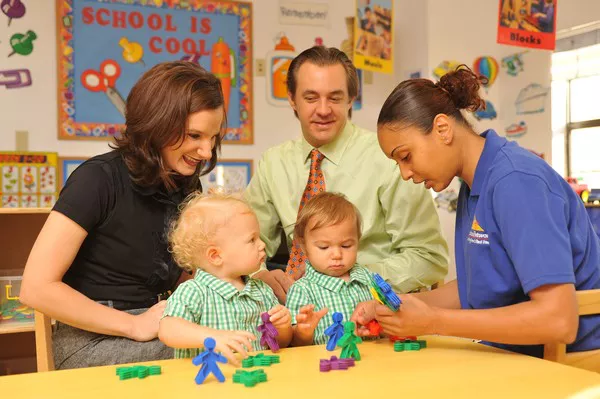In the realm of early childhood education, the significance of play cannot be overstated. Play serves as the cornerstone of a child’s learning journey, fostering holistic development, enhancing cognitive abilities, and nurturing social and emotional growth. In this SEO-optimized article, we will delve into the multifaceted role of play in early childhood education, exploring its numerous benefits and how educators can effectively incorporate play-based learning into preschool curricula.
1. Importance of Play in Early Childhood Education
Play is not just idle amusement; it is the vehicle through which children acquire essential life skills. It is during play that youngsters engage their imaginations, problem-solving abilities, and creativity. According to research conducted by the American Academy of Pediatrics, play is considered crucial for brain development in early childhood. It stimulates neural connections, facilitating optimal cognitive growth.
2. Benefits of Play-Based Learning
a. Enhanced Cognitive Skills: Play-based learning provides an environment where children can explore, experiment, and solve problems. This fosters the development of critical thinking, spatial reasoning, and mathematical skills.
b. Improved Language Development: Through imaginative play, children engage in conversation, expanding their vocabulary and communication skills. This is a vital aspect of early literacy development.
c. Stress Reduction: Play helps children manage stress and anxiety. It provides an outlet for emotions, allowing them to express and understand their feelings better.
3. Play-Based Curriculum in Preschools
Preschools are increasingly recognizing the value of play-based curricula. In fact, the National Association for the Education of Young Children (NAEYC) emphasizes play as an integral part of high-quality early childhood education. Play-based curricula involve structured activities that encourage children to explore, create, and learn through play.
a. Structured Play: This includes activities like building with blocks, dramatic play, and art projects. These activities are designed to promote specific learning objectives while still engaging children in enjoyable play.
b. Free Play: Unstructured playtime allows children to choose their activities, fostering independence and decision-making skills. This type of play can occur indoors or outdoors and can involve solitary or group play.
4. Play and Cognitive Development
The cognitive benefits of play are far-reaching. According to the National Association for the Education of Young Children (NAEYC), cognitive development is significantly enhanced through play. For instance:
a. Problem Solving: Children develop problem-solving skills by experimenting with various scenarios during play, such as figuring out how to build a stable tower of blocks.
b. Memory Enhancement: Games that involve memorization, like memory cards or storytelling, improve a child’s memory retention and recall abilities.
c. Mathematical Understanding: Counting objects during play or arranging items by size and shape help build foundational math concepts.
5. Social and Emotional Growth Through Play
Play is a social activity that encourages interaction and emotional expression. Here’s how it contributes to social and emotional development:
a. Empathy Building: Role-playing and pretend play enable children to step into different roles and understand the feelings and perspectives of others.
b. Conflict Resolution: In group play, children learn to negotiate, compromise, and resolve conflicts, essential skills for healthy social interactions.
c. Self-Regulation: Play provides a safe space for children to manage their emotions, helping them become more emotionally resilient.
6. Incorporating Play into Early Childhood Education
Educators play a pivotal role in fostering play-based learning. To effectively incorporate play into early childhood education:
a. Create Playful Learning Environments: Classroom settings should be rich in play materials that encourage exploration and creativity.
b. Observe and Facilitate: Teachers should observe children during play to identify their interests and developmental needs, then offer guidance and additional resources as necessary.
c. Balance Structure and Freedom: A balance between structured activities and free play ensures a comprehensive learning experience.
In conclusion, play is the bridge to early childhood education’s vast world of possibilities. It equips children with skills that transcend the classroom, nurturing them into well-rounded individuals ready to face the challenges of the future. As research continues to underscore the importance of play, it is clear that integrating play-based learning into early childhood education is not just beneficial; it is imperative. By understanding and harnessing the power of play, educators can guide the next generation toward a brighter, more imaginative future.


